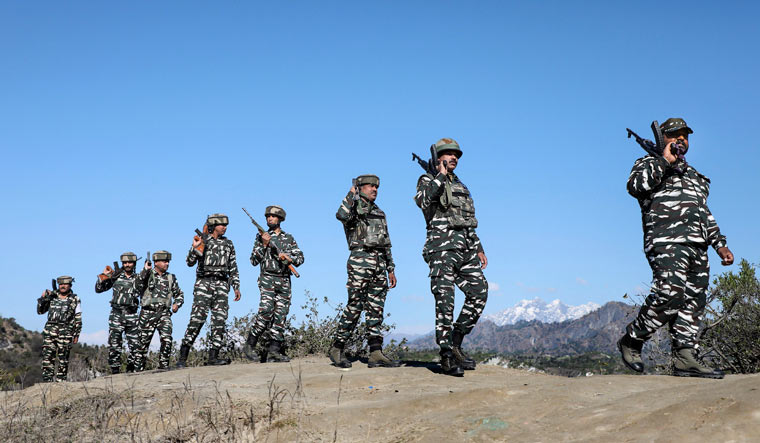The Central Information Commission (CIC) has rejected access to files pertaining to the Centre denying prosecution sanction under the Armed Forces (Jammu and Kashmir) Special Powers Act 1990, in 47 cases involving allegations of custodial deaths and disappearance of civilians, fake encounters, instances of rape and kidnapping, torture, and extortion in J&K. The CIC, acting on a plea filed under the Right to Information seeking permission to inspect the files, issued an order on June 5, rejected access to the documents in the larger public interest.
The appeal pertains to the government of Jammu and Kashmir having sought sanction from the Centre for prosecuting the accused in 50 such alleged cases that had occurred between 2001 and 2016. This is an essential requirement under the Armed Forces (Jammu and Kashmir) Special Powers Act 1990, under which the armed forces of the Union operate in J&K.
The Union government had informed the Rajya Sabha in January 2018 that request for sanctioning the prosecutions was refused in 47 cases due to lack of sufficient evidence, prima facie.
In February 2018, activist Venkatesh Nayak had submitted an application to the Ministry of Defence under the RTI Act seeking copies of the Standard Operating Procedures, criteria and standards of measuring evidence used, designation of the final decision-making authority and inspection of the 47 case files. MoD transferred the RTI application to the Indian Army. Both public authorities denied they held in their custody any of the information described in the RTI application.
The matter escalated to the Central Information Commission in August 2018. The CIC conducted a hearing in February 2020, issued an interim order and reserved the final order to allow for additional submissions to be made after the hearing.
On June 5, the CIC issued its final order permitting access to a copy of the orders issued by MoD refusing sanction to prosecute in each of the 47 cases. The CIC, however, rejected access to the concerned case files in the larger public interest.
“Given the limited jurisdiction of the Commission under the RTI Act, the bench is neither adjudging the merits of the violation of human rights argument of the appellant in relation to the alleged victims or their families nor the conjecture and surmises associated with the denial of prosecution sanction in the 47 cases referred to hereunder. Rather, the facts of the instant case require a dynamic attribution to the meaning of larger public interest within the framework of RTI Act by associating non-disclosure with larger public interest,” the CIC said in its order.
“The commission is in complete agreement with Respondent No 3 (the CPIO and the Army) that disclosure of the elaborate aspects of the Army Operations will impact future operations. The disclosure of operational details will gravely impact the security and strategic preparedness of the armed forces, which by common knowledge, is vital to the state's diaspora,” the CIC further said.
The appellate body said the other aspect of sensitivity lies in the inevitable vulnerability of this subject matter to speculations cutting across national and international borders. “...perhaps even trial by media that will emanate from such disclosure. As a cumulative effect, these eventualities may further compound the situation of unrest and instigate festering emotions in the state, in addition to the international ramifications... Indisputably, the larger public interest of the state (vis-a-vis its susceptibility to unrest) prevails over that of the alleged victims,” ruled the CIC.



